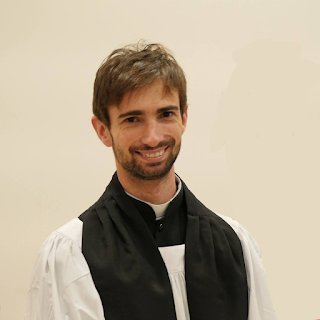Reading
Luke 9:57-62
57 As they were walking along the road, a man said to him, “I will follow you wherever you go.”
58 Jesus replied, “Foxes have dens and birds have nests, but the Son of Man has no place to lay his head.”
59 He said to another man, “Follow me.”
But he replied, “Lord, first let me go and bury my father.”
60 Jesus said to him, “Let the dead bury their own dead, but you go and proclaim the kingdom of God.”
61 Still another said, “I will follow you, Lord; but first let me go back and say goodbye to my family.”
62 Jesus replied, “No one who puts a hand to the plow and looks back is fit for service in the kingdom of God.”
Comment
In this passage, which has a parallel in Matthew (Mt 8:18-22), the Evangelist Luke refers to three different ways of replying to the call of Jesus.
The first protagonist who enters the scene is a "volunteer", who approaches the Lord while he is on the road. Matthew tells us that he was a scribe, therefore a person used to living in comfort. In the hasty offering of himself, he seems not to realize the costs of discipleship which, far from offering a high social position and economic security, exposes to uncertainty and great sacrifices.
All of Christ's activity will almost always be misunderstood by the doctors of the law, who expected a Messiah who would establish a strong and prosperous earthly kingdom. For this, he will often clash with misunderstanding while preaching the gospel and even more in the event of his passion. From the Son of God, from the Son of man, to use a messianic expression (cf. Dn 7:13-14) that Christ often applies to himself was expected a manifestation of power and glory.
A second aspiring disciple is a young man, called directly by Jesus ("Follow me"; v. 59). He is eager to accept the invitation but first wishes to take care of his father, postponing discipleship after his death. The words of the young man are in fact a Semitism that certainly does not indicate the celebration of his father's funeral - if he had died that day the young man would not have even been there where he was, as it is mandatory for Jewish law to celebrate funerals on the day of death - but it meant looking after the elderly father until his death. The young man, therefore, expected his father's death, and probably also to receive his inheritance. Clearly, such an approach to discipleship can only find the Lord's reprobation.
The third "candidate" offers himself to Jesus but asks to first take leave of his relatives. Jesus understands that this man's heart is still torn between the world and the demands of the kingdom of God: the plowman who does not look ahead while plowing can only trace crooked furrows.
The words of this Gospel page do not concern only those who consecrate themselves to a particular ministry in the Church, but every baptized person, who as such is invested with the sacerdotal, royal, and prophetic ministry of Christ. He cannot find us hesitant. Welcoming the gospel means discovering in it the joy in the simplicity and newness of life, in which the apostle puts himself completely into the hands of the heavenly Father.
Prayer
Remove, o Lord, from our lives and our hearts, what stands in the way of your grace, and make us preachers of the kingdom, not with a mercenary spirit but for the sake of your Name. Amen.
- Rev. Dr. Luca Vona

